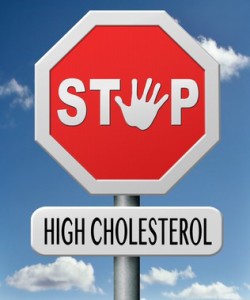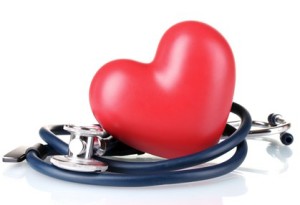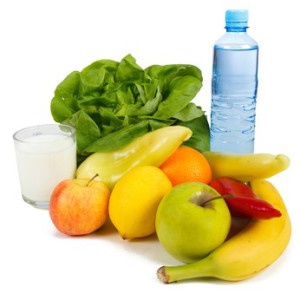How Do Stanols And Sterols Lower Cholesterol?
Author: Dr. Stephen Chaney
 Are there alternatives to statins? If you have been looking for natural approaches for lowering your cholesterol and protecting your heart, you’ve probably been hearing a lot about plant stanols and sterols lately.
Are there alternatives to statins? If you have been looking for natural approaches for lowering your cholesterol and protecting your heart, you’ve probably been hearing a lot about plant stanols and sterols lately.
What Are Stanols and Sterols & What Do They Do?
Just what are plant stanols and sterols and why does the National Institutes of Health (NIH) recommend them as a natural approach for lowering cholesterol?
Stanols and sterols are natural substances found in plants that have a structural resemblance to cholesterol. Because they look a lot like cholesterol, they compete with cholesterol for absorption from the intestine into the mucosal cells lining the intestine. However, once they get into the intestinal mucosal cells they are recognized as foreign and are immediately pumped back into the intestine so that they never get into the bloodstream.
 Let me give you an analogy. Let’s think of the intestinal mucosal cells as a nightclub. The doorman doesn’t check IDs. He lets everyone into the club. Pretty soon the word gets around and stanols and sterols start lining up at the door. If a cholesterol molecule comes along, he gets discouraged by the line and doesn’t even try to get in. What the stanols and sterols don’t know is that there is a bouncer inside the club who does check IDs throws everyone who doesn’t belong there out the back door.
Let me give you an analogy. Let’s think of the intestinal mucosal cells as a nightclub. The doorman doesn’t check IDs. He lets everyone into the club. Pretty soon the word gets around and stanols and sterols start lining up at the door. If a cholesterol molecule comes along, he gets discouraged by the line and doesn’t even try to get in. What the stanols and sterols don’t know is that there is a bouncer inside the club who does check IDs throws everyone who doesn’t belong there out the back door.
When you think about it, this is the best of all possible worlds. Cholesterol molecules don’t get into the bloodstream and neither do the stanols and sterols.
Alternatives to Statins: How Do Stanols and Sterols Lower Cholesterol?
 As part of their Therapeutic Lifestyle Change Program the NIH recommends that people with elevated cholesterol consume 2 grams of plant stanols and sterols a day because over 80 clinical studies have proven that they work.
As part of their Therapeutic Lifestyle Change Program the NIH recommends that people with elevated cholesterol consume 2 grams of plant stanols and sterols a day because over 80 clinical studies have proven that they work.
Two grams a day of stanols and sterols is sufficient to lower LDL cholesterol (the bad kind) by 9 to 13%. And many other clinical studies have shown that lowering LDL cholesterol by that much will lower your risk of a heart attack by 18-26%.
No wonder the NIH is so bullish on stanols and sterols!
Answers To The Questions You Didn’t Think To Ask
Here are answers to some questions that you haven’t even thought of yet:
#1: If 2 grams a day is good, would more be better?
No. Studies clearly show that 2 grams/day is optimal. Higher intakes do not lead to a significantly greater reduction in LDL cholesterol.
#2: Are there any side effects from consuming plant stanols & sterols on a daily basis?
No. That’s the great thing. Plant sterols and stanols are natural substances that we consume every day – and clinical studies have shown that they have no side effects.
#3: Is there some magical stanol/sterol combination that is more effective than others (as some supplement manufacturers would have you believe)?
 No. Numerous studies have shown that stanols and sterols from many different sources have exactly the same effect and that it doesn’t matter whether they are esterified or not.
No. Numerous studies have shown that stanols and sterols from many different sources have exactly the same effect and that it doesn’t matter whether they are esterified or not.
#4: Can I get 2 grams a day of stanols and sterols from my diet?
It’s unlikely. Even the best natural sources (usually fruits and vegetables) only have 5 to 40 mg per serving. If you are a vegetarian you can expect to get around 700 mg from your diet. If you consume a typical American diet you get around 250 mg and if you eat a lot of fast food you are probably getting less than 100 mg.
#5: I’ve noticed that food manufactures have started fortifying foods with stanols and/or sterols. Is this a good choice for me?
Not necessarily. You need to remember that Big Food Inc is not always your friend. To get 2 grams of stanols from Benecol you would need to consume 280 calories, 4 grams of saturated fat and 1.2 grams of trans fat. Two grams of stanols from Promise activ Super-Shot only costs you 70 calories, but it comes with artificial colors and 8 grams of sugar plus sucralose.
#6: When should I consume stanols and sterols if I want to maximize my LDL cholesterol reduction?
Any time from 30 minutes prior to your meal to with your meal is ideal – but the plant sterols and stanols will exert their beneficial effects for several hours so the time that you take the stanols & sterols is not critical.
#7: Are plant sterols and stanols a source of dietary fiber?
No. Plant stanols & sterols and dietary fiber work by different mechanisms – but they do complement each other in lowering LDL cholesterol. As a matter of fact, the NIH Therapeutic Lifestyle Program recommends 10-25 grams/day of soluble fiber along with the 2 grams/day of stanols and sterols. You should consider stanols/sterols and dietary fiber as a powerful one-two punch in your battle to lower your LDL cholesterol naturally.
#8: I’m already taking a statin drug. Is it OK to take plant stanols & sterols as well?
Absolutely. The NIH recommends that people using statin drugs also follow their Therapeutic Lifestyle Change Program – which includes 2 grams of plant stanols and sterols a day. In fact, because the effects of statins and plant sterols & stanols are additive, you may be able to reduce your dosage of statins or eliminate them entirely – which means less cost and less risk of side effects to you. [Note: You should partner with your physician in determining the dosage of statins to take.]
What I do not recommend is that you go off your statin drug and switch to a supplement containing stanols and sterols without consulting your doctor. Stanols and sterols have a more modest cholesterol lowering effect (and fewer side effects) than statin drugs. So if you were to just go off your statin and switch to a stanol/sterol supplement, your cholesterol levels might actually go up.
#9: Should I ask my doctor before taking plant stanols & sterols?
I always recommend that you keep your doctor informed about what you are doing. However, because the NIH recommends plant sterols and stanols for people with elevated cholesterol, your doctor is very likely to approve.
The Bottom Line
- Plant stanols and sterols can be an important part of a holistic approach to lowering cholesterol naturally. In fact, the NIH recommends 2 grams/day of plant stanols and sterols as part of its Therapeutic Lifestyle Change Program for lowering cholesterol.
- 2 grams/day of plant stanols and sterols lowers LDL cholesterol (the bad kind) by an average of 9 to 13%, which is sufficient to decrease your heart attack risk by 18-26%.
- Here are the answers to the most common questions I receive about stanols and sterols (for the full response read the article above)
- 2 grams of stanols & sterols a day is optimal. More is not better.
- There are no side effects to adding stanols & sterols to your diet.
- There is no “magical” sterol/stanol formulation. They all work about the same.
- It is very unlikely that you can get 2 grams/day of stanols & sterols from your diet.
- It is best to consume stanols & sterols before or with a meal, but the exact timing isn’t crucial.
- Stanols & sterols are not the same as dietary fiber, but stanols/sterols and dietary fiber complement each other as part of a holistic approach to lower cholesterol.
- It is OK to take stanols & sterols along with a statin drug. In fact, this is part of the approach recommended by the NIH Therapeutic Lifestyle Change Program. However, I do not recommend going off of a statin drug and substituting stanols & sterols without the permission of your doctor.
These statements have not been evaluated by the Food and Drug Administration. This information is not intended to diagnose, treat, cure or prevent any disease.
